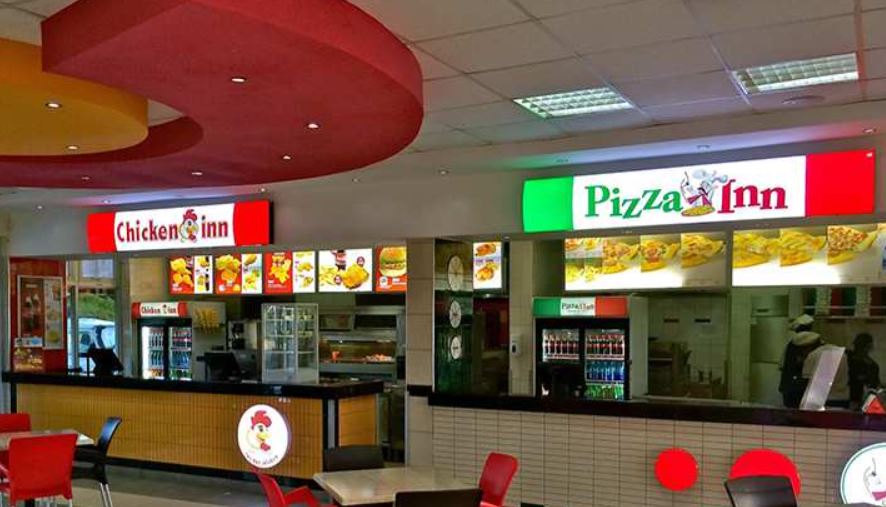 Salim Eceolaza, a Zimbabwean native, is the managing director of Simbisa Brands, which is behind popular chains like Pizza Inn, Chicken Inn, Creamy Inn, Baker’s Inn, Galitos, Stop&Shop, and Myshop Convenience Stores (at select Oilibya stores), among others.
Salim Eceolaza, a Zimbabwean native, is the managing director of Simbisa Brands, which is behind popular chains like Pizza Inn, Chicken Inn, Creamy Inn, Baker’s Inn, Galitos, Stop&Shop, and Myshop Convenience Stores (at select Oilibya stores), among others.
“I previously worked for PriceWaterhouseCoopers in Harare and New York before moving to London with KPMG for three years,” he says.
In 2010, at age 27, he quit the job and set up a business with a friend in Zimbabwe.
“We set up a stock-broking and corporate finance company, which still exists today. It was not easy. The best piece of advice I received then was to get an office, find a company name, get it online and start. That way, anyone would know where to find me.”
Within four months of getting a licence, IH Group was the second-largest stock-broking company in the country.
“We did so much work for one of our biggest clients, Innscor, that their Board of Directors asked me to join them as their Finance Director. My first job was to create Simbisa Brands, the fast-food business arm,” he says.
Salim shares some of the lessons he has learnt in his career journey.
1. Avoid inaction
It is better to get a speeding fine than a parking ticket. I always say that to my team. Getting analysis paralysis by doing nothing is the worst thing you can do. I would rather you take that bold step at work and back it up. Even if it is a mistake, you can live with it, but at least you have done something; tried something. Being young and cautious, you can bury your head in the sand and hope the problem goes away, or that you get handed the opportunity, but it may never happen. That is the biggest struggle I have had to deal with in my career.
2. Attitude will make or break you
Education has value but it’s not everything. A person’s educational background is important to consider but it’s not what will determine whether they get the job. Attitude is more important. Someone with 10/10 education but the wrong attitude will not get the job, but someone with lower education but 10/10 attitude will get the job. Attitude is key. To rise through the ranks, maintain the right attitude, assimilate to the culture, embody the values of the company, be hardworking and be able to work in a team.
High performers tend to be all about ‘me, me, me’. Such people’s biggest mistake is usually not appreciating that success is a team effort. And eventually it could lead to their downfall.
3. Chart a course
You need to have a target while fully appreciating that what you are targeting is not always what happens. You need to ask yourself what that target is from a professional point of view. Have clarity of: “Where are my interests? Where are my passions?” It could be music but you can’t always start out as a musician. So maybe you start out working for a musical company, or a band. Whatever it is, you have to chart a course between where you are and your target. It is never direct. It has some meanders, but once you are clear on that, it helps.
4. Hard work doesn’t always translate fast
One of the greatest values I have had to learn is patience. It takes time to get to where you want to be. I have been impatient because as a young person, you believe that if you put in the work, you will get to the top. You say to yourself; ‘I have worked hard, I have gotten the qualifications, I am competent, therefore I should have this position, I should be this person in society.’ But that is not how it always works.
I have had to learn to actually have the patience to enjoy the journey. The destination really doesn’t matter. It’s the experiences along the way. It’s about having that thought that, ‘You know what, the destination will happen anyway but the process won’t always happen the way you thought it would. And keep it mind that Shona proverb that says, ‘A basket of eggs hatches at different times.’
5. Strive for a work-life balance
The old me would work crazy hours, burning the candle at both ends. I think you can’t get away from that early on in your career, but with more experience, you need to find a better balance.
I am inspired by the type of person who can balance work, personal life, social life and religious life. That is the kind of person I strive to be. I don’t want to be 100 per cent brilliant at work and suck at everything else or be brilliant in my personal life and suck at everything else. I believe that we have so many compartments as people and they are all very important to our functioning. I feel that if they were not balanced appropriately, I would not have succeeded in my life. So I try and make sure I am as all-rounded and as balanced as possible. There is more to me than just work or just family life or just spiritual life.
6. Have empathy
I have a deep belief in the goodness of the human race. I believe that no one goes out with the pure intention to do harm. That difficult person may be just someone in a bad space; they may have psychological problems and trauma that you don’t know about. I once worked with a lady manager early on in my career who was tough, difficult and uncompromising; the worst person to work for. Then we all went on a team-building exercise and everyone was asked to talk a little bit about their childhood. We soon found out that upon her mum’s death when she was a baby, she was raised by her dad, a military man and in the barracks. Her formal and strict manner then made sense to us. Have empathy and understanding for people around you. It will make work feel a little easier because fact is, you will work with all sorts. Additionally, the ability to work with different people will distinguish you in your career.
7. Form relationships
All through my career, I have had help in areas that were valuable – I got chances, lucky breaks, advice and mentorship. One particular person, one of my first bosses, somehow spotted my potential early on in my career. If there was anything I needed to improve on, he gave me that reality check. I needed that, because with his direction I grew. If you seek out learning opportunities, if you make an effort to move out of your comfort zone, I firmly believe the universe brings such people along.
8. Get these currencies that don’t depreciate
Honesty and integrity are your currency. That’s the best advice I have ever received, and it came six years ago from the chairman of the group. When you get into leadership, you will be tested. The person who you are before leadership is more obscure, but now you are illuminated. You are put under more pressure, so you must have integrity and honesty in everything. When you get to the top, you will get so busy that trying to remember every lie that you told the day before, let alone a month ago, or two years prior, will not allow you to keep up with your job. In the course of my career, I have seen employees become dishonest because the boss is dishonest and two years later, the business crumbles. If you have nothing else, at least have integrity.







